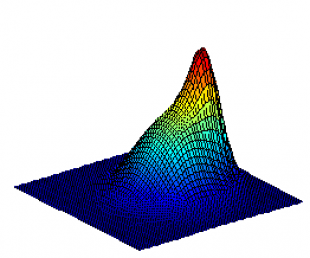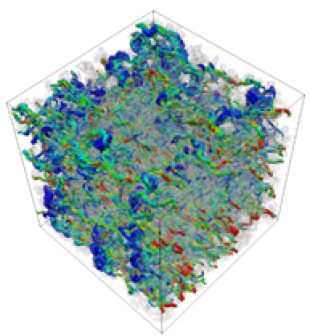Location:
Date:
Abstract:
Surface effect is prominent in highly-confined fluid flows in nanopores or nanochannels, where the molecular-scale slip and inhomogeneous fluid properties (e.g. oscillation of fluid density) are greatly influenced by the wall potential exerted on fluid molecules and intermolecular interactions between fluid molecules. Meanwhile, the local mean free path of fluid molecules may still be larger than the pore/channel dimension, resulting in non-equilibrium transport of dense gases (liquids or gases). In this case, the Boltzmann equation, based on the dilute gas assumption, becomes insufficient. Meanwhile, the conventional Navier-Stokes model is invalid as it is for quasi-equilibrium flow of homogeneous fluids.
I will start with a brief introduction of our research activities on multiscale fluid mechanics, and then present our recent work on modelling non-equilibrium flow of dense gases. In order to exclude complex effect from interactions with wall surfaces, the developed Enskog-Shakhov model is first validated for the normal shock wave of non-ideal monatomic dense gases. I will then present some results of our on-going work on modelling fluid surface interactions using the mean-field theory approach.
Bio:
Yonghao Zhang is Jason Reese Chair in Multiscale Fluid Mechanics and leads the Multiscale Flow Research Group. Before he joined the University of Edinburgh in July 2020, he was Weir Professor of Thermodynamics and Fluid Mechanics at Strathclyde University where he had worked for over 13 years. He has more than 20 years’ experience in leading research on multiscale gas/liquid/solid systems, focusing on mesoscopic modelling across the boundaries of conventional computational engineering, software development and implementation on national supercomputers.
Video:





